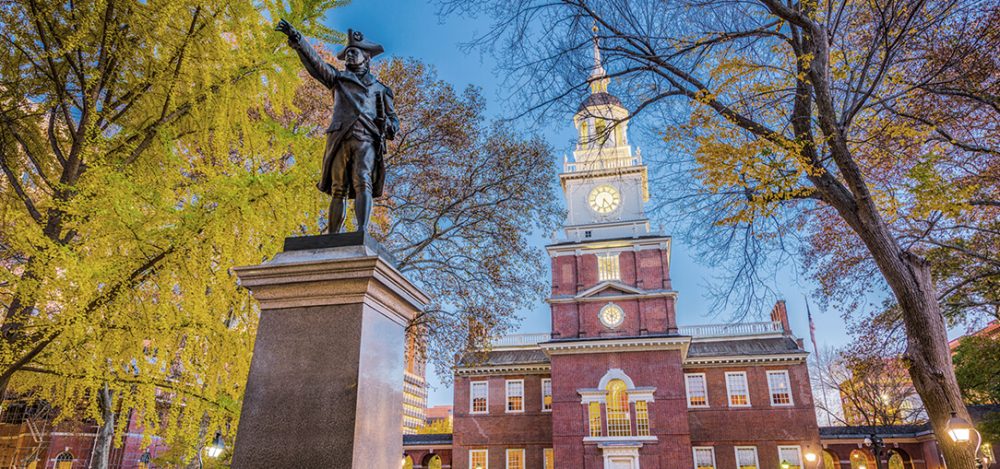
by Christopher Paslay
A classic multicultural approach – one that teaches tolerance, inclusion, and respect for diversity – is a preferred way of achieving racial justice and equality.
In his fifth edition of Cultural Diversity and Education, research scholar and “father” of multicultural education, James A. Banks, offers an interesting approach to fair and equitable education called multicultural ideology. Published in 2006, it’s less aggressive and confrontational than current 2020 anti-racist educational approaches, which tend to be more accusatory than celebratory; in 2006, mainstream multicultural education focused on unity over dichotomy, which is no longer the case today, as zero-sum anti-racist philosophies — which seek to deconstruct so-called problematic “Whiteness” — are now heavily influencing policies and perspectives.
Multicultural ideology is a blending of assimilation and cultural pluralism, where the American national identity adapts and develops to become more diverse and pluralistic, yet doesn’t abandon the nation’s core values — the fundamental principles that make America unique and one of the most successful countries in the world. In Cultural Diversity and Education, Banks writes that multicultural ideology is reflected in educational policy that is “guided by an eclectic ideology that reflects both the cultural pluralists position and the assimilation position, but avoids their extremes.”
Multicultural educators hope to end racism by celebrating diversity, and by interacting with people through fundamental human values, both at the conscious and subconscious levels; anti-racists hope to end racism by becoming hyper-focused on race and the cerebral concepts of implicit bias and microaggressions in order to end so-called “white supremacy culture.” The former creates a society based on values from the heart, where both racism and the preoccupation with skin color are eliminated through interpersonal, cross-cultural relationships. The latter creates a world where, in theory, racism ends through an intellectual process which analyzes and rejects all forms of bias whether conscious or unconscious, but still leaves us with a hyper-focus on race.
The double-standards at the heart of anti-racism are many. Tragically, the fact that there are one set of rules for whites, and another set of rules for people of color, does a disservice to the very cause of anti-racism — which is to level the playing field and bring people of all races equal access to America’s resources. Believing that “Whiteness” is a fundamental problem that must be solved is not the best approach to opening the minds of whites.
It’s well documented that the provocative approaches employed by anti-racist educators have an adverse effect on white people, as evidenced by Robin DiAngelo’s theory of “White Fragility.” Unfortunately, whites who are triggered by the divisiveness of anti-racism are not offered compassion, because according to DiAngelo, “niceness is not anti-racist.” On the contrary, whites are told to “get over it,” and that their tears are disingenuous ploys for keeping white racism in place.
The fact that these anti-racist approaches, despite eliciting such adverse reactions, continue to be put upon whites is reminiscent of a concept made popular by Dr. David R. Hawkins called “Power vs. Force,” which analyzes “the hidden determinants of human behavior.” While true power resides from within, force is applied through projection—an outside force trying to impose its will. Force can only work for so long; once it encounters true power, it immediately unravels. Interestingly, many of the emotions cited by DiAngelo as evidence of white fragility — such as anger, shame, guilt, and apathy — are listed by Hawkins as being a reaction to force. Nowhere in white fragility theory can one find positive responses related to true power, such as courage, love, joy, or enlightenment; everything tied to white fragility is zero-sum and is based on dichotomy rather than unity.
But for some reason, unity — as well as universalism, colorblindness, and other concepts which prioritize racial harmony over dichotomy — are resisted by people like DiAngelo. Such things are delegitimized and even stigmatized, and often rebranded by anti-racists as perpetuating racism. This is necessary in part to shock sheltered whites out of their bubbles and bring systemic racism to light. But the simple fact is that America needs more racial unity, and less confrontation.
Provoking whites with the notion that they all suffer from implicit bias and are perpetuating racism by default, is limited in its effectiveness. The goal of disturbing a white person’s racial comfort in order to disrupt a racial hierarchy is using force instead of true power. While whites may be pressured into compliance, is this compliance genuine and long lasting? Is insisting that the advancement of people of color depends on the disruption, de-centering, or deconstruction of problematic “Whiteness” ultimately empowering people of color to live independently from the crutch of identity politics?
A classic multicultural approach – one that teaches tolerance, inclusion, respect for diversity, etc. – is a preferred way of achieving racial justice and equality. Multicultural education hasn’t worked perfectly, but educators should not give up on it. Educators must focus on the things that unify and bond people together, and should continue to explore, respect, and celebrate racial differences, which would do much to end systemic racism in this country.



 about him. In the world of race-baiting and identity politics, being colorblind is akin to committing a hate crime. Despite the disingenuous attacks from fellow senators, Sessions is a good man with a glowing record on civil rights. During a march to commemorate the 50th anniversary of “Bloody Sunday,” Jeff Sessions held hands with civil rights icon Congressman John Lewis as they crossed the Edmund Pettus Bridge in Selma, Alabama.
about him. In the world of race-baiting and identity politics, being colorblind is akin to committing a hate crime. Despite the disingenuous attacks from fellow senators, Sessions is a good man with a glowing record on civil rights. During a march to commemorate the 50th anniversary of “Bloody Sunday,” Jeff Sessions held hands with civil rights icon Congressman John Lewis as they crossed the Edmund Pettus Bridge in Selma, Alabama.


